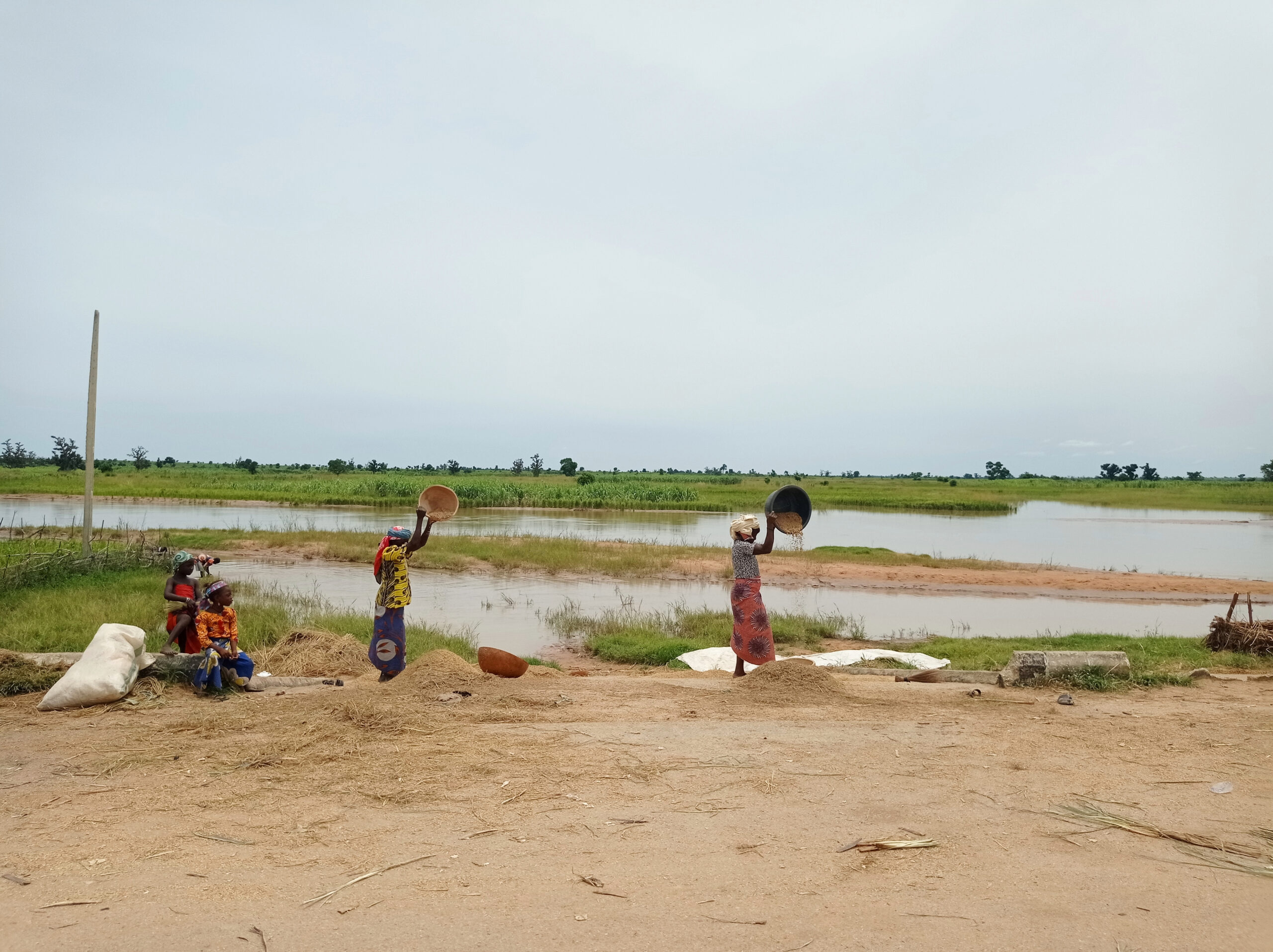With admirable clarity, our colleague Tom Dannenbaum outlined how international criminal law might apply to starvation during his presentation in our conference The Return of Famine. In case you missed it, below is a video and transcript of his remarks.
Transcript:
I am going to do three things in my remarks and I’m going to focus exclusively on international criminal law. The three things I’ll do are: first, identify what tools we have in existing international criminal law to respond to famine atrocities. Second, I’ll describe a little bit why I think it’s potentially important, notwithstanding those tools, to have a famine-specific crime and what it would look like to get there. And third, I’ll give some words of caution regarding whether international criminal justice is actually a useful mechanism by which to respond to famine atrocities.
First of all, by international criminal law I mean to refer to that body of international law that identifies wrongs to which individual criminal liability attaches at the international level, either at a supranational court–like the International Criminal Court (ICC) or the ad hoc tribunals for Yugoslavia and Rwanda–or underpinning universal jurisdiction in a domestic court. In other words, when a domestic court asserts jurisdiction over crimes abroad committed by foreigners against foreigners. Within that context, international criminal law, we have four categories that are generally recognized: genocide, crimes against humanity, war crimes, and the crime of aggression. For our purposes, the two that are most useful in respect to responding to famine atrocities are crimes against humanity and war crimes. That’s not to say that a famine crime might not implicate genocide, might not implicate the crime of aggression, but those two categories of crime are so narrowly defined and so rarely applicable that it’s unlikely in most cases that famine atrocities will rise to the level of genocide or the crime of aggression. And when they do, it’s likely that crimes against humanity and war crimes will also be applicable. So it’s very unlikely that genocide or aggression will facilitate criminal liability for a famine atrocity.
Okay so then let’s think about war crimes first. The most attractive provision in the ICC statute is Article 8(2)(b)(xxv) which identifies the crime of intentionally starving a civilian population as a method of war, including by depriving them of access to objects indispensable for their survival, which includes impeding humanitarian relief. There are several reasons why this is an attractive criminal provision for responding to atrocity crimes. The first is that it expresses the wrong that we are concerned with. By identifying starvation as the crime, it’s identifying all that comes with starvation as part of the criminal wrong. And Alex’s book identifies multiple layers of the wrongfulness of starvation that aren’t necessarily captured by crimes solely focused on killing or even solely focused on suffering. This includes the ways in which we interact together, the ways in which it upends our social norms, our way of being, our way of relating to ourselves. And so by having starvation identified as the crime in Article 8(2)(b)(xxv), we have the right kind of expression.
The second important aspect of it for our purposes is that it includes explicitly impeding humanitarian relief so that it does away with ambiguity regarding whether that can be part of the criminal act. And the third really significant feature of the crime of starvation in the ICC statute is that it doesn’t have a consequence element of people dying or suffering. In other words, you can be held liable for this even if it can’t be shown that your actions directly caused the death or human suffering of specific individuals. And that’s an important feature in a context of starvation crimes or famine atrocities where the temporal nexus between the conduct and the consequences is stretched and so the difficulty of proving causation is elevated. Those are all three reasons why this is an attractive provision for responding to famine atrocities.
There are two reasons why we might not think it’s a particularly attractive provision or why it’s not as useful a provision as it might be. The first relates to intent and the second relates to the fact that it attaches only in international armed conflicts. The intent point I actually think is typically overblown. There is some dispute in the literature about exactly how we should understand this. One view is that if the object of your starvation actions in an armed conflict is to starve out a military community, and by doing so you’re starving civilians on the way, that that’s not covered by the crime. In my view, that’s incorrect, legally incorrect, not just morally horrific.
It is legally incorrect for four reasons. So first we have to understand what it means to say that something is intentional in the Rome Statute. The Rome Statute, ICC’s text, defines intention and includes as intentional acts, acts that are taken with the knowledge that the prohibited outcome will occur in the ordinary course of events. The fact that it is intentionally starving a civilian population doesn’t mean that you have to have the purpose of starving the civilian population. Your purpose could be starving the military that are behind that civilian population. But if it’s clear, it is understood, with a virtual certainty that you will starve civilians to achieve that objective, it is the intentional starvation of civilians.
The second reason is that there is a provision underpinning this in the laws of war, in Additional Protocol 1 [of the Geneva Convention] Article 54, that specifically defines when there are military necessity exceptions to the crime of destroying objects indispensable to the civilian populations. And there are only two contexts in which there are those exceptions. One is if those objects are being used exclusively by the military, so there is no starvation of civilians. There is no direct harm to civilians at all. The second is if they’re being used for the direct support of military actions and the consequence of destroying them or denying access to them would not be the starvation of the civilian population or its forced displacement. So in other words, there is no military necessity exception to this in the underlying international humanitarian law provision in Article 54 of Additional Protocol 1.
The third reason not to recognize this kind of military necessity execution is that it’s not provided for in the ICC statue. There is no clause within Article 8(2)(b)(xxv) that allows for that kind of military necessity exception. And the final is that, in international humanitarian law generally, you cannot excuse an attack on a civilian population or a civilian area by the fact that there are military objectives within it. You have to identify, separate, and specifically target those military objectives in the context of targeting law. There would be a deep normative inconsistency and incoherence if you could do the same thing through starvation, namely starve through a civilian population in order to attack a military population. So all of that is to say that under this provision, siege warfare that involves the starvation of civilian is illegal and criminal and there is no ambiguity about that in my view.
However, there is a big gap, a big flaw, in this provision in so far as we want to use it to respond to famine atrocity. It only attaches in international armed conflicts. In law, when we use the term international armed conflict, we mean armed conflict in which both sides of specific dyad involve states. So even when you have a state fighting a nonstate actor abroad, that is still a non-international armed conflict. Almost all of the dyads in the current Syrian conflict are non-international armed conflicts. International armed conflict law doesn’t apply. So what are we left with then in non-international armed conflicts?
One option is that we do have this same starvation crime applicable in non-international armed conflicts in certain domestic statutes on war crimes. I mentioned earlier that there are two possible forums in which we could have accountability for international crimes, international courts or domestic courts exercising universal jurisdiction. A number of domestic systems have as part of their war crimes law, the crime of starvation in non-international armed conflicts. And so in those courts, criminal accountability for the starvation crime would be available even in non-international armed conflicts. That is particularly relevant since many of the non-international armed conflicts in which starvation is currently occurring are not parties to the ICC anyway, so the most likely forum for accountability for any crimes in those contexts, including Syria, Yemen, South Sudan, would be in a foreign domestic court.
If we don’t have that forum available, then, in non-international conflict law, we are reduced to rules of cruel treatment–in other words, inflicting severe harm or physical or mental suffering or direct killing of civilians. The problem with both of those is that you have to prove causation. You have to prove that the starvation crime causes the lethal or suffering outcome and that creates certain obstacles to accountability.
Outside of armed conflict or supplementing either of these bodies of law in armed conflict, we have crimes against humanity law. Within that we can think of three categories of crimes against humanity that are potentially relevant here. The third I’ll discuss separately because it really goes to the issue of creating new crimes. The first two are murder or extermination, and these are under Articles 7(1)(a) and (b). The reason why extermination is potentially more attractive as a criminal justice tool for responding to famine atrocities is that it specifically includes, in the Rome Statute, the deprivation of food or medicine. So, it is part of the expression of what extermination constitutes, that it includes the deprivation of food. The difficulty in both of these categories is that you again have to prove causation. You have to prove that death is the outcome of the potentially criminal policy. By the way, all crimes against humanity have to occur as part of a widespread or systematic attack on a civilian population pursuant to an organizational or state policy. The nature of famine atrocities is such that they are almost always going to meet that threshold. So that is less of a legal obstacle.
So we have various tools by which we might respond to famine atrocities in international criminal justice: most clearly with the starvation crime in international armed conflicts; potentially with starvation crimes by universal jurisdiction in non-international armed conflicts; and then through certain kinds of crimes against humanity, most notably, killing and extermination in either kind of armed conflict or in peacetime.
But we may still think that there is good reason to identify a famine-specific crime or starvation-specific crime that can properly express the full scope of the wrong that we have in the context of a famine atrocity and that might also, not just serve that expressive function, but might actually serve to help to mobilize prosecutorial action on this, one of the key obstacles that Alex mentioned earlier. If one of the reasons why prosecutors aren’t taking action on this is because it is easy to dismiss this crime, identifying the crime as specifically a crime of famine or starvation forces attention onto it in a different way. So how would we go about achieving that kind of amendment to the existing system?
There are basically four ways, the fourth of which I think is the most viable, so I’ll spend more time on that. The first would be to simply amend the Rome Statute. The difficulty with that is you need two-thirds of the state parties to agree to an amendment and then each state has to ratify it individually. And it would only be applicable to nationals on the territory of the ratifying states. So that is, first of all, a long road, and secondly, it’s unlikely to be broadly applicable. The second would be to develop a treaty that requires states to prosecute famine crimes as a matter of universal jurisdiction. The most obvious treaty by which to do that would be the treaty that’s currently in development on crimes against humanity at the International Law Commission. The difficulty there is that this treaty is already extremely advanced and it is unlikely that you could add additional substantive provisions at this stage. And it is anyway derivative of the Rome Statute and is in some ways trying to uphold and bolster the Rome Statute definition of crimes against humanity. So there would be significant resistance to adding provisions that would deviate from that existing framework. The third option would be to push states individually, using their universal jurisdiction statutes, to add famine crimes to those provisions. I already mentioned some have done that in non-international armed conflicts, but one could push them to do it in times of peace and through a crime against humanity of starvation.
But the fourth, and I think by far the most viable, is use of the residual category of crimes against humanity in the Rome Statute’s Article 7(1)(k), which is other inhumane acts of comparable severity to those listed explicitly in the crime against humanity provision. And this is a useful way of proceeding, I think, because it would allow for the articulation and definition of a starvation crime that would then be iterated over multiple cases without needing an amendment to the Rome Statute. We’ve seen this precise action occur with respect to forced marriage.
In the Special Court for Sierra Leone, which had provisions governing the criminality of sexual slavery, sexual violence, enslavement, forced labor—all of which were tools by which you could prosecute the underlying acts of forced marriage—there was nonetheless the decision made by the prosecutor and accepted by the court that it was necessary to articulate a separate crime to properly identify and express the wrong of forced marriage, that goes beyond simply the forced labor involved, the enslavement involved, the sexual slavery, forced pregnancy and so on. And that’s now underpinning part of the prosecution of Dominic Ongwen at the ICC. Again, under the same “other inhumane acts’ provision within the ICC statute. So, you can identify a specific kind of crime and then incorporate it as an “other inhumane act” that then becomes its own crime, standing with its own kind of expression. So Ongwen is being prosecuted in part for the other inhumane act of forced marriage, not just for other inhumane acts. The one caveat I would add to the attractiveness of this as a way of responding to atrocity crimes is that, here too, you’d need to prove causation. Specifically, you need to prove that there is a causation of great suffering or serious bodily or mental harm or injury.
That leads me to the words of caution I would note about the utility of international criminal justice in responding to famine atrocities. There are three senses in which I think we should be cautious about this.
The first is that we really cannot dismiss the complexity of the causation question. In almost all of the crimes, except for starvation as an international armed conflict crime, we require the causation of some kind of harm, some kind of suffering or death on the part of the civilians affected. It is extraordinarily difficult to prove international crimes as it stands. In contexts in which we don’t have this temporally stretched nexus between the criminal conduct and the consequence that attaches to it. And so, we would be asking the prosecutor to do a significant amount more in terms of bringing evidence and establishing the guilt of particular individuals that can be tied to particular outcomes. To expect significant action on that, I think we may find ourselves being frustrated, particularly given that the evidence gathering will often require the cooperation of humanitarian actors. As many of you in the room know, there are significant complications about the relationship between humanitarian access and international criminal justice and the way in which humanitarian actors may or may not be able to provide evidence to international criminal justice without undermining their capacity to negotiate affectively with people who hold power on the ground.
The second word of caution is that international criminal law is not at its highest moment. The ICC has recently suffered its first withdrawal, Burundi. The Philippines is on the way. It is also about to engage in a series of investigations that will be highly politically contested and put great pressure on the court, including in Afghanistan regarding US actors there, in Georgia regarding Russian actors there, and possibly in Palestine including potentially Israeli actors there. All of those will create significant political backlash, each of those states not being state parties to the Rome Statute. It will put a significant degree of pressure on a court that is already facing significant pressure from withdrawals and from resistance from the African Union to some of the actions that the ICC has been taking on the African continent.
The final word of caution is to note that international criminal justice has hegemonic tendencies. International criminal justice and the actors within it tend not to accept alternative solutions or alternative remedies to situations on the ground including peace treaties, amnesties within peace treaties, or other actions that might undermine the prospects for international criminal justice. And because of that hegemonic tendency, it can sometimes prove counterproductive on the ground. So we should be hesitant to dive into saying that criminal justice is the appropriate response to famine atrocities, given that it could ultimately prove counterproductive in certain contexts. Whether or not that weighs sufficiently heavily against the kind of moral expression that Alex was just describing, I’m not sure, but it certainly should give us pause in thinking about whether this is the appropriate way to respond to these kinds of horrors.



